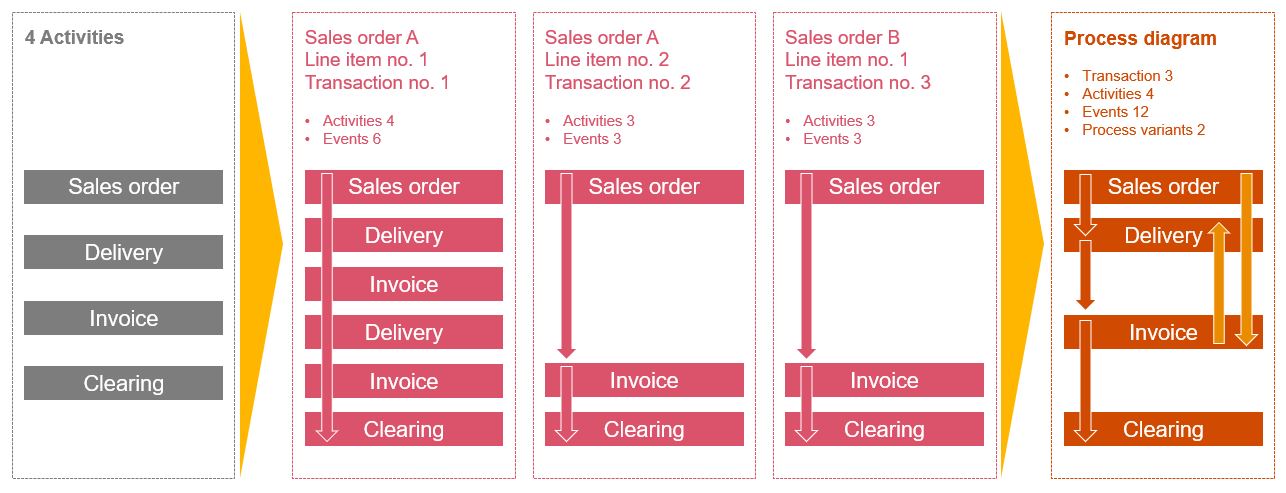{{item.title}}
{{item.text}}

{{item.text}}
Data Driven Process Analytics has seen rapid growth over the past years. This growth is driven by the fact that only three data points are required to reconstruct an end-to-end process flow. In this blog post, we will explore based on our experience with over 250 projects, which processes are good candidates and what data is required to use data driven process analytics.
While there are a multitude of factors to consider for choosing the right process, our experience has shown that we should examine primarily three dimensions:
Processes that are highly system supported have a good chance of leaving significant data traces in said systems, typically making them suitable for data driven process analysis. This covers most processes that are executed leveraging one or multiple ERP (Enterprise Resource Planning) systems. Even with some parts of the process being executed outside of the system, significant improvement potential can be found.
Next to the system support, a high number of process executions - typically at least several thousand - is vital for a thorough analysis of the process and the value realization succeeding it. Unless there is an exceptional reason for process analytics, such as a forensic / audit investigation, we strongly suggest assessing the number of process executions before investing time into any data analysis.
Especially when conducting your first data driven process analysis, the process selected should either be a core process of your business or have a significant monetary impact on the company's operations. This is required, as otherwise any findings might lack the substance to trigger improvements and change the process.
Across most industries, we have seen many companies starting with finance related processes such as “Procure to Pay”, “Order to Cash” or “Record to Report”. In the financial services industry, the first use cases in process analytics are often targeting “claims management” or “know your client” processes – often on complex, homegrown systems spanning multiple systems.
Once the first steps in data driven Process Analytics are taken, advanced concepts such as building up a Process Control Tower can be considered.
Luckily, the data requirements for data driven process analytics are limited. While more data will add to the substance of findings, the process flow itself can be reconstructed by using three data points:
The transaction identifier allows you to group process steps that occur within a transaction together. Adding a timestamp to it enables a temporal ordering of the process steps, thus showing their order in the system.
While processes executed across multiple systems tend to use different transaction identifiers for the same process, our experience showed that we can most often generate an overarching transaction identifier, enabling the analysis.
A common issue we saw is that timestamps may come at various levels of granularity, across a multitude of time zones. Depending on the specifics of the recording, this can have an impact on the analysis or can be fully ignored.
If you are in doubt whether your data can be leveraged, feel free to reach out in the section indicated below.
A lot of companies feel that their data is not ready to support data driven process analytics. In over 250 projects, we learned that companies overestimate the data requirements. Given the misconception of complexity and requirements, initiatives can get stalled or cancelled, while there would be a solid business case for improvement.
#social#
If you want to know more about our Process Analytics please do not hesitate to get in touch with us:
https://pages.pwc.ch/core-contact-page?form_id=7014L000000NNztQAG&embed=true

